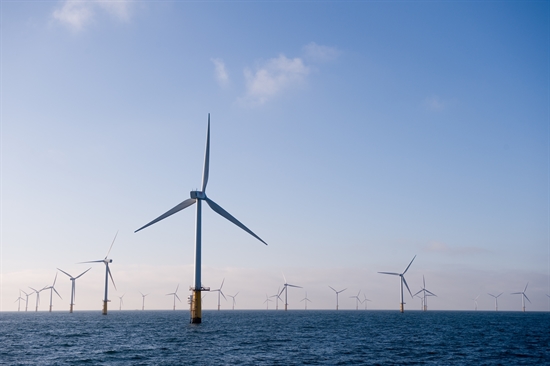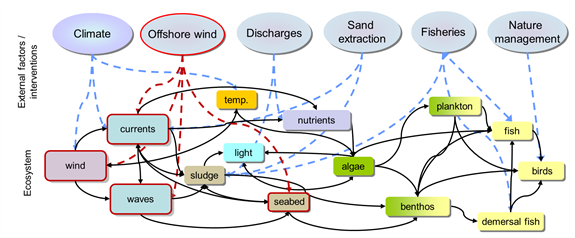Ecosystem effects
The Netherlands is planning to upscale offshore wind in the Dutch North Sea in the period leading up to 2030. Further upscaling is also possible after that date. Surrounding countries also have their own, often ambitious, plans for upscaling offshore wind in their regions of the southern North Sea. There may be fundamental effects on the ecosystem of the North Sea that are still poorly understood.

Deltares conducted a literature study to see how local wind patterns, wave generation, tidal amplitudes, the stratification of the water column, dynamics of suspended particles and the bedload transport of sediment may be affected. Another important change associated with the upscaling of offshore wind is that the infrastructure will provide more hard substrates, not only on the bed (in the form of scour protection) but also in the upper layers of the water column, where there will be more attachment opportunities for filter-feeding benthic organisms.
These changes to the physical functioning of the North Sea may have far-reaching consequences for the ecosystem: changes in the total amount as well as timing of primary production, food availability for filter feeders and higher trophic levels, and habitat suitability for many species on the lower trophic levels. Ultimately, species at the top of the food web may also be affected, including birds and marine mammals that have been a focus of the Wozep programme from the start.

Simplified causal network for assessing large-scale offshore wind farm effects on southern North Sea ecosystem (Deltares)
The Deltares study identified the major potential effects of the possible upscaling of offshore wind in the southern North Sea, as well as the most important gaps in our knowledge. We need to learn more about the effects of changes in wind, waves, currents and turbulence on stratification and tides. More should also be known about the implications for water quality and species at the basis of the food web (phytoplankton, bed fauna, more hard substrate - and therefore filter feeders - in the water column).
This initial review leaves us with a lot of questions. The magnitude of the effects is still very unclear and the potential impact on the ecosystem is even more uncertain. More research is necessary to establish a clearer picture. The Wozep scope and budget does not cover all the relevant research. As destratification has already been found to occur in German wind farms and as stratification/destratification is known to affect many fundamental ecological processes in the North Sea, this has been identified as an area of high priority. To learn more about the point at which significant effects might be expected on the abiotic system and, subsequently, the North Sea ecosystem, follow-up research under the Wozep umbrella will focus on hydrodynamic modelling to investigate destratification in the water column in a number of hypothetical scenarios for offshore wind.